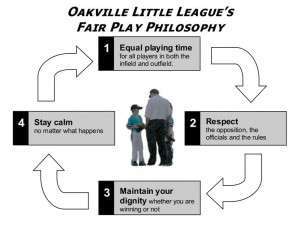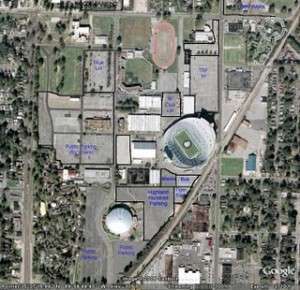 We make no secret of our support for the creation of a new government that takes the place of Memphis and Shelby County Governments, but changing the rules in the middle of the game to accomplish is not just poor sportsmanship.
We make no secret of our support for the creation of a new government that takes the place of Memphis and Shelby County Governments, but changing the rules in the middle of the game to accomplish is not just poor sportsmanship.
It’s bad faith. It’s bad form.
It’s power over persuasion. It’s cleverness over statesmanship.
It’s more about being the winner than making sure the entire community wins.
Usual Suspects
That’s the way we felt when we read that former judge D’Army Bailey, City Councilwoman Janis Fullilove and Shelby County Commissioner Steve Mulroy believe that the state law requiring dual referenda for government consolidation – one inside Memphis and one outside – is not legal, and if they can knock it down, the path is cleared for consolidation. Even better from their points of view, they get to stick it to the people and the suburbs that so often serve as their whipping boys.
The Memphis City Attorney has been asked for a legal opinion, but even if he agrees with the trio, it’s still just one lawyer’s opinion (even if it is printed on City Hall stationary). It is not binding and in the great scheme of things, it’s not only irrelevant but it could be intolerably expensive if there is an unfortunate vote by some legislative body to challenge the law in court.
In the end, only a judge’s opinion really matters, and the potential of dragging this issue out in court seems such a waste. If these people want to end the dual referenda, they ought to do it the right way, the way suggested by former Memphis Mayor Willie W. Herenton – by amending the Tennessee Constitution.
Resisting Temptation
If a lawsuit is filed, we can only hope that a court will declare it to be frivolous. The current law, we are told by a leading Memphis attorney, has already been upheld by appeals courts, but Mr. Bailey, Ms. Fullilove and Mr. Mulroy may be unable to resist the temptation to headline hunt by trying to change the rules in the middle of the game, and doing nothing so much as solidifying (and justifying) the distrust held by so many people outside Memphis.
First, one of them asked legal experts if any other states have the same dual referenda. Five minutes on Google could have answered that. Yes, there are other states that have a system similar to ours, and while we can get aggravated over the ability of the minority to thwart the will of the majority, it’s unseemly for the dual referenda to be couched in the language of race. It was added to the Tennessee Constitution way back in
Even if we agreed that it is not fair that voters outside Memphis essentially have veto power over the voters inside Memphis (where the majority of the county’s residents live), it is not a civil rights issue. It is just the way that politics sometimes work. For example, Wyoming gets to elect two U.S. senators and they can cancel out the votes of the two senators from California although the latter has 75 times more people.
Fair and Square
But here’s the main thing. The current Charter Commission has begun its work, and as its chair Julie Ellis has often said, it is working under the statutory provisions of Tennessee law. Now, with that work under way, some people now step up in an effort to change the rules and deepen the divisions in our county that a new government is aimed at solving.
It’s unfortunate, because it feeds conspiracy theories about black helicopters and secret charters in some quarters and fuels emotional attitudes on both sides. There’s no question that a dual referenda requirement to merge governments sets a high bar for Tennessee, but they are the rules as we knew them when the 15 members of the Charter Commission were appointed and when those of us supporting that process signed on.
We want to win this fair and square – by convincing people outside Memphis that if they keep their minds open, there is much in a new government that serves their interests and their futures – and that’s not by treating this important issue like it’s a game. Turning this serious issue into a game of one-upmanship cheapens the process and does little to foster the kind of serious, thoughtful discussion.
Not That Easy Being Green
Meanwhile, on the future of the old Mid-South Fairgrounds, some City Council members turned the “greening project” at the site into an equally bizarre conversation – this one about lost parking spaces. It was fueled by an incomplete Commercial Appeal article that reported that just over 600 parking spaces are being lost and then contradicting it down in the same story.
This tempest in a teapot came from concerns by the Southern Heritage Classic that he was losing the parking places as a result of the clearing of asphalt to make way for the so-called Great Lawn, an expansive area of green space that creates a grand entrance into the site and frames Liberty Bowl Memorial Stadium.
There’s nothing stranger to us than Memphians who rally around their car-centered lives, but the defense of the acres of asphalt at Fairgrounds was nothing sort of delusional. It was as if 10 days of football games trumps a development that could be a magnet for activity all 365 days. Perhaps, the defense of the parking spaces was just part of one of the favorite pastimes by many people – trashing city government and anything connected to it.
Parking a Better Idea
Missing from the article, according to City Hall officials, was a simple fact: the project under way not only doesn’t reduce the parking by about 600 parking spaces. It actually creates 1,800 more parking spaces – at least until city government decides what it wants to do with the old Fairgrounds site. That decision ultimately rests on how much revenue can be produced there.
We are as sensitive as anyone else to the need to have a reasonable amount of on-site parking, but apparently our car-centric community wants the interests of our vehicles to take precedence over the interests of our families. Much of the parking area in question is used for tail-gating, and as for us, we’d rather pitch our tent on something more like The Grove at Ole Miss than asphalt with all the charm of a mall parking lot.



You can have green and parking at the same time–pervious grass pavers are used all across the country. I suggest that the City get with the technology at the Fairgrounds and then maybe try it out on the the Zoo’s abuse of the Greensward. I know a concrete pre-caster that would love to set up the molds to make ’em.
Sometimes I swear the individuals that are most critical of these projects and many of our leaders (including those heading up the Southern Heritage and Liberty Bowl) have never been to a major sporting event outside this city. There are numerous college campuses around this nation where the average number of fans in attendance is greater than the Liberty Bowl is even capable of seating and yet these same stadiums have very limited adjacent parking. Regular sell outs seem to contradict the notion that ample adjacent parking is necessary to draw a crowd. No doubt there is a need for parking at stadium, but how many large specialty lots do we need in the area? Some of the nearby large lots that would likely be unused on any given Saturday are the lots at Lindenwood Christian Church, New Salem Baptist, Christian Brothers, the lots at the Memphis Board of Education and let’s not forget the massive lots at the U of M. Add a handful of shuttles and the need for onsite parking (and the ensuing traffic congestion) could be greatly reduced.
anonymous wrote:
“Sometimes I swear the individuals that are most critical of these projects and many of our leaders (including those heading up the Southern Heritage and Liberty Bowl) have never been to a major sporting event outside this city. There are numerous college campuses around this nation where the average number of fans in attendance is greater than the Liberty Bowl is even capable of seating and yet these same stadiums have very limited adjacent parking.”
…
So, because somewhere else you’ve heard of sucks, it’s ok to keep sucking when we could do better?
This is the very kind of stupidity that has Memphis stuck in 1964 and being relegated to “nothing but a memory” very soon.
Zippy, you are awesome! You did a great job of proving my point.
Who said those other areas “suck”. I think those other places have it right and apparently the fact that the schools I have in mind continue to have sellout crowds every year says the fans think it’s a good setup as well. The fact that you think that the ideal is for everyone to drive up and park right next to the stadium is what is keeping this city stuck in 1964. Zippy- get out more! Go to a game at the University of Oklahoma, or Texas or Notre Dame. Maybe go and catch a game at the Cotton Bowl where there is nowhere near enough adjacent parking so everyone takes the buses and trains, or as local examples go check out Arkansas or Vanderbilt. Those are just a couple of examples of where the necessary parking is not necessarily located adjacent to the stadium. While you are at these locations, be sure to tell the fans in attendance that their game day experience is horrible because they couldn’t all park in giant lots at the fields. You will be laughed out of every event.
I can’t believe you actually said that- couldn’t have planned it better myself.